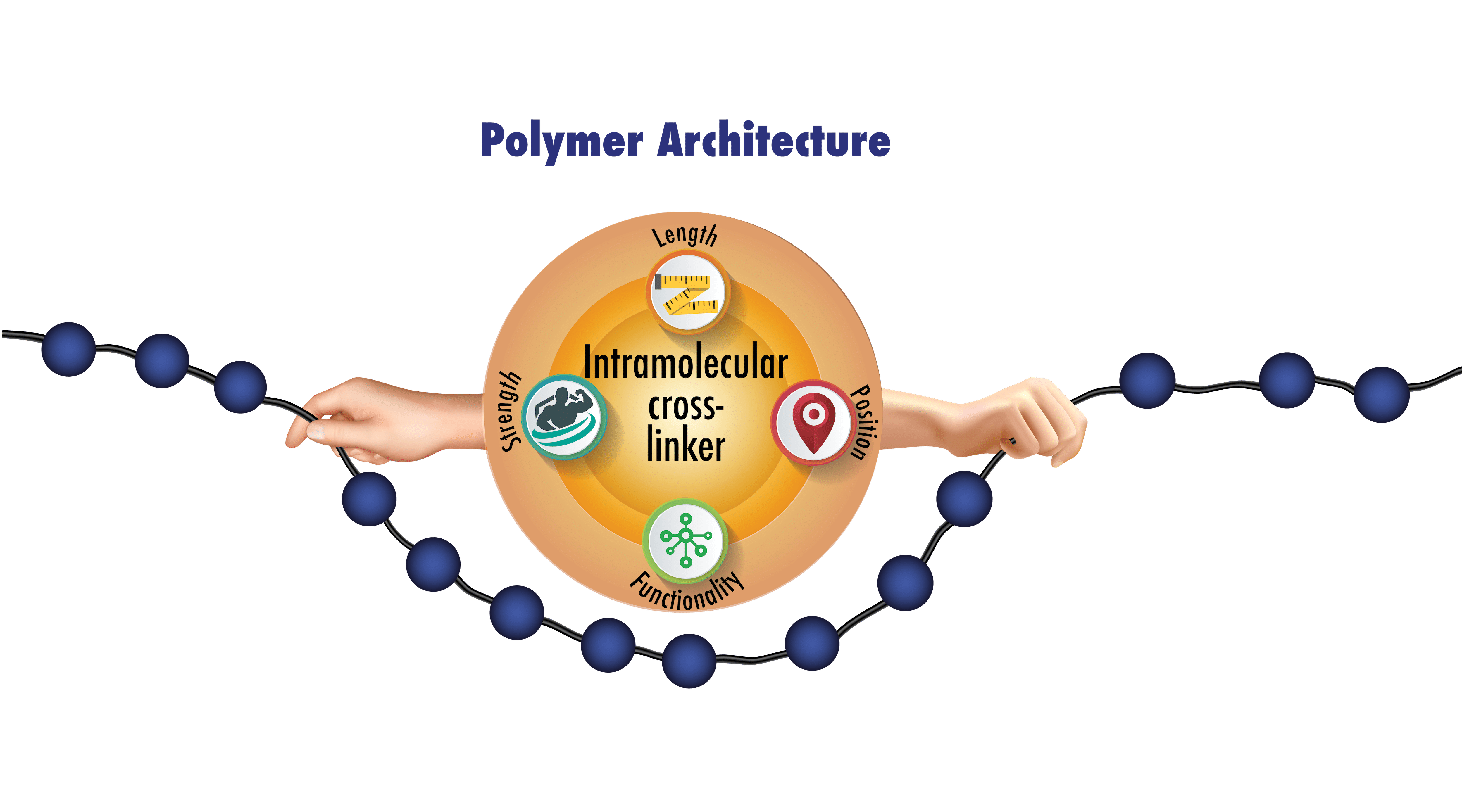
Invited, ICS Award
The mechanochemistry of intramolecularly cross-linked polymers
Understanding how materials are affected by mechanical stress is central for developing novel and robust materials with extended lifetimes. In this regard, the most fundamental process is the effect of mechanical stress on molecules, where mechanical energy is transduced into chemical energy by scission of chemical bonds, a process called mechanochemistry. While mechanochemical reactions have been abundantly studied, the use of polymer architecture as a motif for polymer mechanics has been mostly unexplored. In this talk, I describe the use of intramolecular cross-links to reinforce the molecular structure and reduce fragmentation due to mechanochemistry. A systematic study changing molecular weights as well as cross-linker density, strength, length and positioning was carried out to understand how each of these parameters affects the kinetics of the mechanochemical reactions. In addition, with the use of supramolecular bonds, reversible mechanical unfolding and thermal refolding was demonstrated, effectively creating synthetic entropic springs.

Powered by Eventact EMS